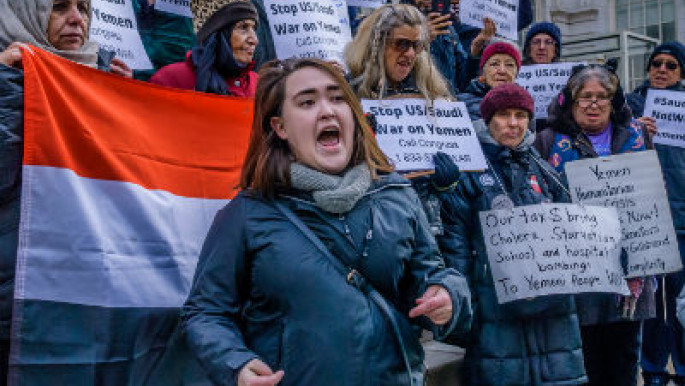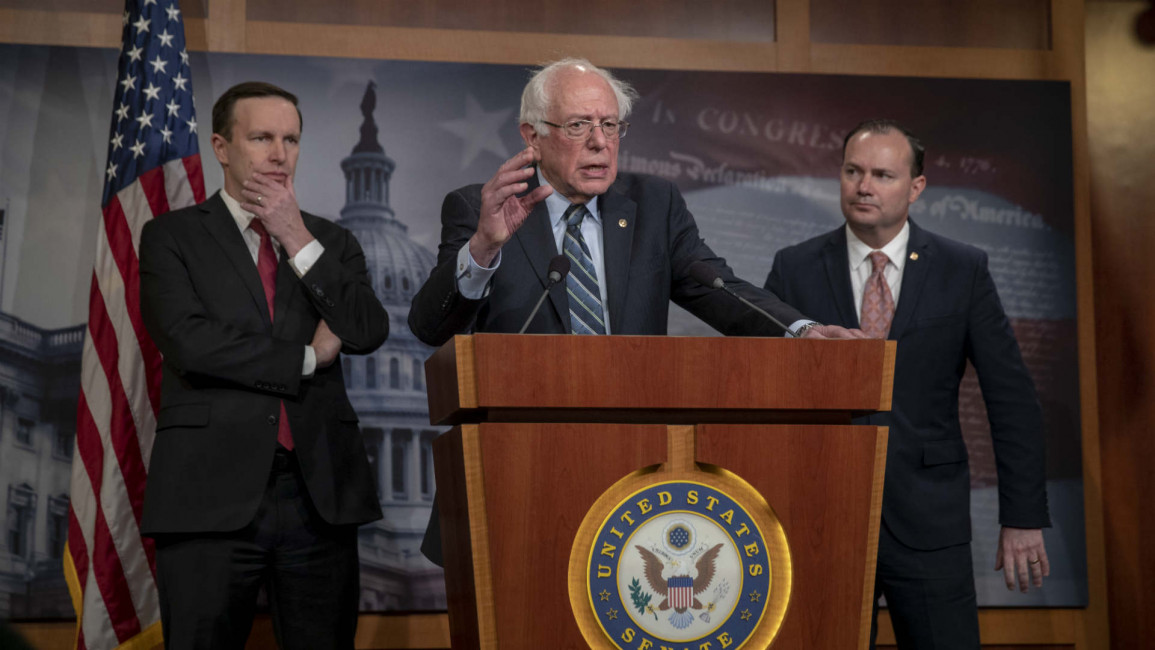Senators revive bid to end US support for Saudi military in Yemen
US lawmakers from both the Republican and Democratic parties will continue their attempt to pass a bill ending US support for the Saudi-led coalition fighting in Yemen. With the newly reshuffled Congress, the chances of the bid's success are "strong", according to experts, building on the historic resolution voted in at the end of last year.
Senator Bernie Sanders, along with Republican Senator Mike Lee, Democratic Senator Chris Murphy, and Democratic Representatives Ro Khanna and Mark Pocan, have planned a news conference for Wednesday to discuss the proposed legislation.
Currently, the US provides an array of military support for the Saudi-led coalition, in which the UAE also plays a lead role.
"Presently US support largely consists of intelligence-sharing, training for ground and air forces, and some repair or maintenance work offered to the Saudi Royal Air Force," according to a researcher on Saudi Arabia, who spoke to The New Arab on condition of anonymity.
"Most significant, of course, are US arms sales to Saudi Arabia," they added. Some versions of the new bill would also restrict arms sales on a case-by-case basis.
In a historic vote in December, the Senate approved a war powers resolution on Yemen by 56-41.
Seven Republicans joined forces with the Democrats supposedly in anger over the alarming civilian death toll in Yemen, as well as the murder of US-based Saudi journalist Jamal Khashoggi at the Saudi consulate in Istanbul in October.
William Hartung, US foreign policy expert at Center for International Policy told The New Arab: "Prospects for historic votes to end US involvement in the war in Yemen are strong."
 |
|
| Protesters in New York City rally against US military support for the war in Yemen [Getty] |
"But there are no guarantees," he added. "Advocates of ending US support for the Saudi-UAE intervention will work hard to overcome resistance spurred by the powerful Saudi and UAE lobbies in Washington."
Read more: Historic Senate vote sets stage for ending US role in Yemen
However, the measure was stalled as Republicans, who controlled the House of Representatives at the time, did not allow a House vote before the end of the year.
Trump has promised to veto the legislation if it goes through.
After victory in the mid-terms, Democrats now hold a House majority, although Republicans have upped their margin in the Senate by two seats, now holding a 53-47 majority. Both houses of Congress would need to vote with a two-thirds majority in order to overpower a Trump veto.
But opposition to unquestioning support for Saudi Arabia is growing.
"Despite the shuffling of the Senate membership, there is almost certainly still a majority in favor of restricting the US role in Yemen, or otherwise finding a way to sanction Saudi Arabia," the researcher said.
At the same time, there are still many in Congress who would be loath to take any measure that would endanger the US-Saudi Arabia relationship. Many White House officials see an alliance with Saudi Arabia and the UAE as instrumental in countering the influence of Iran in the region.
But with the UN making more robust efforts in ending the war, the resolution could be used to pressure Saudi Arabia and the UAE to work harder on a peaceful conclusion to the conflict, which has put Yemen on the verge of mass famine.
"These resolutions matter because the United States is the primary military supporter of both Saudi Arabia and the UAE, supplying the bulk of the bombs and aircraft they are using in the war and playing a critical role in sustaining their war machines," Hartung told The New Arab.
"Passage of these bills will demonstrate that Saudi Arabia and the UAE no longer have unconditional support in Washington and will press the coalition to negotiate in good faith to end the war," he added.
Read more: Have Western arms sales to Saudi Arabia peaked?
Since a Saudi-led coalition intervened to support of the beleaguered government in March 2015, at least 10,000 people have lost their lives according to the World Health Organisation.
However human rights groups believe the real death toll could be five times as high. Widespread famine and outbreaks of deadly diseases such as cholera, exacerbated by a de-facto Saudi blockade on Yemen's ports, are endangering the lives of more civilians.
A delicate ceasefire is currently underway between Saudi-backed government forces and Houthi rebels in the port city of Hodeida, however, human rights groups have voiced concern that the agreement may soon unravel.
Follow us on Twitter: @The_NewArab



